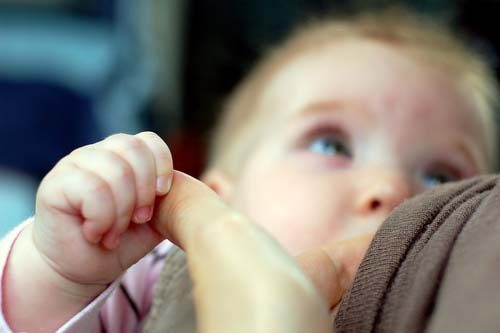
Breastfeeding is not commonly practiced by most Qatari women, due to a lack of professional support and information about its benefits, research by Sidra Medical and Research Center has found.
Unicef figures from 2005 (the most recent data available) state that only 12 percent of mothers exclusively breastfeed their children in Qatar, compared to 37 percent globally – far below the Unicef world target of 50 percent.
The Qatar Foundation-funded Women and Children’s hospital, which is not slated to open for some time, has released the results of its new research to coincide with World Breastfeeding Week.
The hospital assembled a focus group of 90 young Qatari mothers, and asked them about the help and information they received about breastfeeding, both before and after birth.
Traditional practices
Eman Nasralla, community relations and development manager at Sidra, led the research. She told Doha News that instead of being led by sound medical advice, many Qatari women are influenced by traditional practices which discourage breastfeeding.
“Qatari women often provide sugar water, date water and herbal drinks as well, believing that breast milk alone is not enough,” she said.
“Women are also told that the milk they have in the first few days is not enough, or that maybe the baby doesn’t want to be breastfed. They also often have people around who can help bottle-feed the baby, so they don’t feel they need to breastfeed.”
The study also found that traditionally, Qatari mothers are told that drinking water themselves will not help their bodies recover from childbirth, leading to inadequate supplies of milk.
The answer to the problem, according to Nasralla, is more information and support, such as awareness campaigns that clarify the benefits of breastfeeding for both child and mother. She added:
“We also need to provide professional support to teach mothers the best methods, and nurses should have more education about breastfeeding, too.”
Although this research focused on Qatari women, Sidra is currently analyzing the results of a similar study on Qatar’s expatriate mothers.
Breastfeeding benefits
Unicef recommends that for the benefit of both mother and child, babies should be exclusively breastfed for the first six months of life.
Sidra has produced an infographic about the benefits of breastfeeding (see below), which it says is just the beginning of a broad educational campaign.
It highlights benefits to the child which include a lower risk of infections, Sudden Infant Death Syndrome (SIDS), leukemia and diabetes; and for mothers, more protection from breast cancer, rheumatoid arthritis and high cholesterol, as well as natural family planning. (In the first six months after an infant is born, mothers who are exclusively breastfeeding have only a 2 percent chance of conceiving another child.)

National initiative
Sidra’s research sessions were carried out as part of a series on a variety of topics related to maternal and child health, all aiming to inform Sidra’s policies, helping it to become a center of excellence in Qatar.
Although the research was carried out for Sidra’s benefit, Nasralla says she hopes its findings will spread across the country’s health sector.
“Breastfeeding is one of Qatar’s national health strategy pillars – so it’s a national initiative.
To this end, we will be holding a symposium about breastfeeding on September 11th which will target the medical community in Qatar. It’s open to all medical staff from both the private and government sectors.”
Sidra has also launched an email account – [email protected]– which aims to give information, education and support to new mothers in Qatar.
Delayed opening
Originally slated for a 2011 opening, Sidra is significantly delayed.
Although staff recruitment has been ongoing for many months, the hospital has yet to announce when it will finally open its doors.
Nasralla declined to comment on the hospital’s opening schedule.
Thoughts?
Credit: Photo by Fikirbaz







